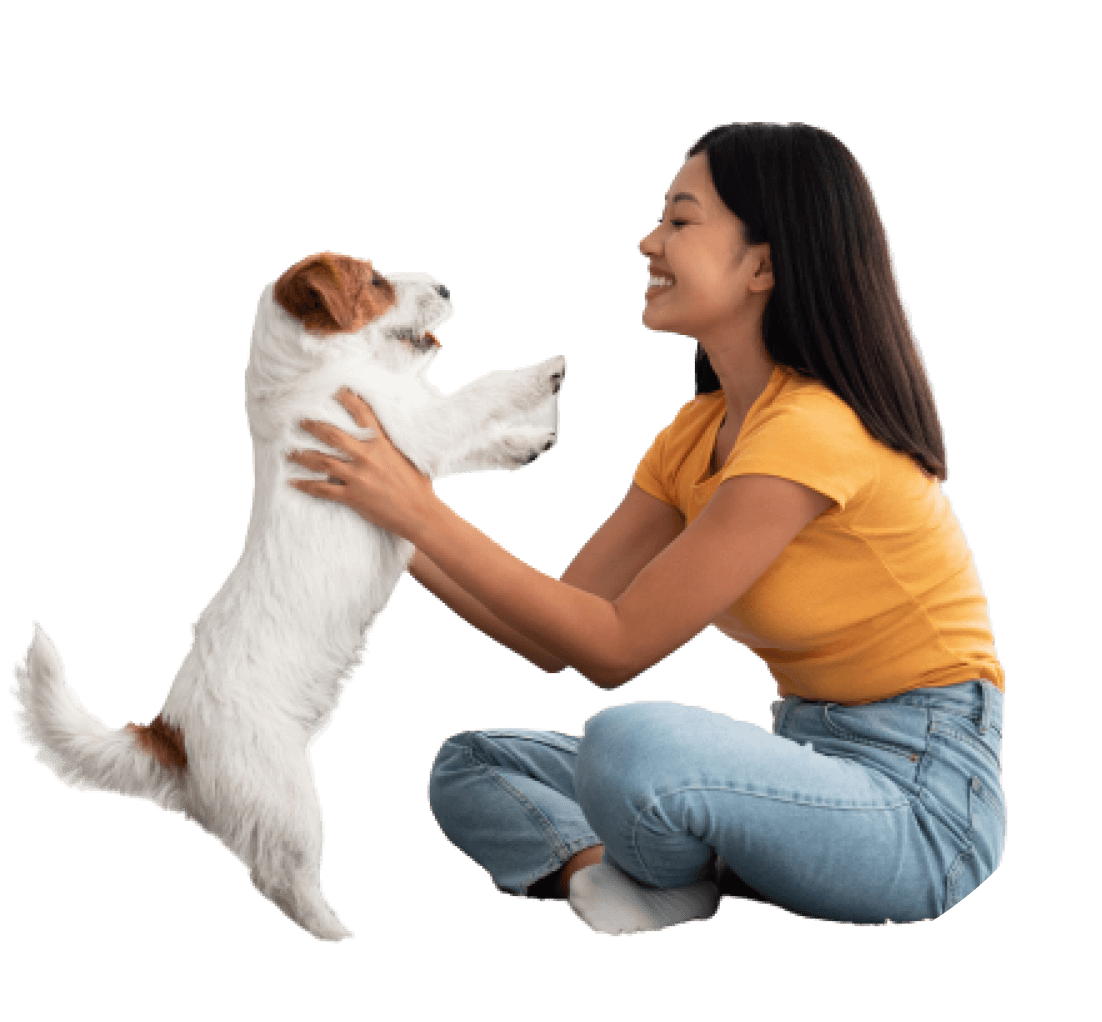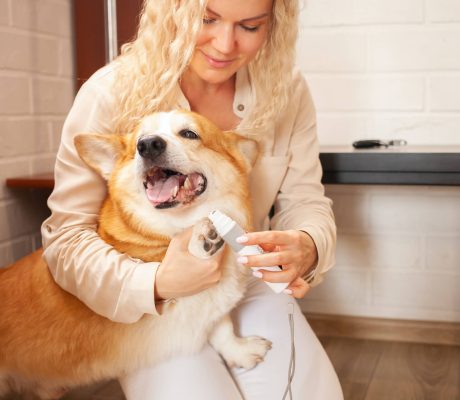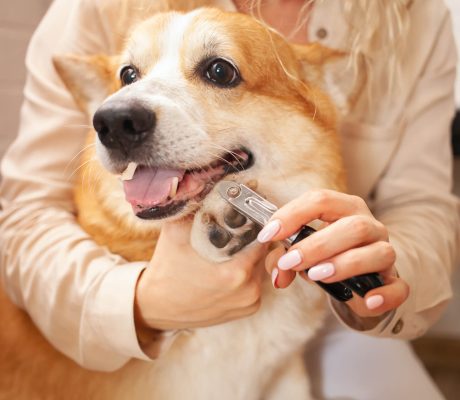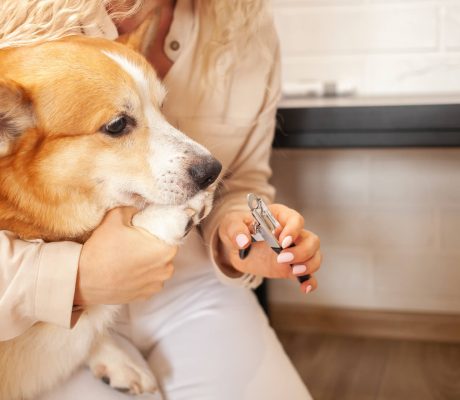For effective aggressive dog training in Austin, Texas, consider specialized rehabilitation programs offered by local trainers. These experts can help address challenging behavior problems and provide valuable guidance to overcome dog aggression.
With the right professional assistance, you can create a positive environment for your pet and improve their behavior over time. It's important to remember that aggressive dog training takes time, patience, and consistency, and it's not a quick fix. By working with a certified behavioral consultant and implementing proper techniques, you can effectively manage and rehabilitate aggressive behavior in dogs.
Additionally, seeking assistance from experienced trainers can provide valuable insights and support in addressing aggression issues, ultimately creating a harmonious environment for both you and your pet.

Credit: www.koruk9.com
Introduction To Aggressive Dog Training In Austin
For effective Aggressive Dog Training in Austin, seek professional help to address challenging behavior issues. Austin trainers specialize in rehabilitating dog aggression, providing tailored solutions to overcome aggressive tendencies and promote positive behavior. Contact local experts for personalized training programs to help your dog thrive.
The Prevalence Of Dog Aggression
Aggressive behavior in dogs is more common than many people realize. According to the American Veterinary Medical Association, an estimated 4.5 million dog bites occur in the United States each year. The prevalence of dog aggression in Austin is a concern that needs to be addressed with proper training and behavior modification.
Importance Of Addressing Behavioral Issues
Addressing behavioral issues in dogs is crucial for the safety of both the dog and the community. Aggressive behavior can pose a danger to people and other animals, leading to legal consequences for the owner. Additionally, addressing these issues can improve the overall quality of life for the dog and the people around them.
Aggressive behavior in dogs is not a problem that can be ignored or simply wished away. It requires a proactive and comprehensive approach to training and rehabilitation. With the right techniques and professional guidance, aggressive dog behavior can be effectively managed and modified.
Recognizing Aggression In Dogs
In Austin, Texas, recognizing aggression in dogs is crucial for effective aggressive dog training. Local trainers specialize in rehabilitating challenging behavior problems, offering solutions for controlling and managing dog aggression through professional guidance and consistency.
Aggressive behavior in dogs can be a serious issue that needs to be addressed immediately. It is important for dog owners to recognize the signs of aggression in their pets to ensure the safety of those around them. Understanding the triggers that cause aggressive behavior is also crucial in preventing incidents from occurring. In this section, we will discuss the signs of aggressive behavior and how to identify the triggers that cause them.
Signs of Aggressive Behavior
Dogs show aggression in many ways, and it is important for pet owners to be aware of these signs. Some of the common signs of aggressive behavior in dogs include growling, barking, snarling, lunging, and biting. Dogs may also show signs of aggression through their body language, such as raised fur, a stiff tail, and a rigid body posture. If you notice any of these signs in your dog, it is crucial to seek professional help from a certified behavioral consultant to address the issue.
Understanding Triggers
Identifying the triggers that cause aggressive behavior in dogs is crucial in preventing incidents from occurring. Triggers can be anything from a loud noise to a certain type of person or animal. It is important for dog owners to pay close attention to their pet's behavior and environment to determine what triggers their aggression. Once the triggers have been identified, it is important to work with a professional dog trainer to develop a plan to desensitize the dog to the trigger and prevent aggressive behavior.
Recognizing aggression in dogs is crucial in preventing incidents from occurring. By understanding the signs of aggressive behavior and identifying the triggers that cause them, dog owners can work with professional trainers to address the issue and ensure the safety of those around them. Remember, aggressive behavior in dogs can be fixed with proper training and attention from a certified behavioral consultant.
Professional Training Options
When it comes to addressing aggressive behavior in dogs, seeking professional training options is crucial to ensure the safety and well-being of both the dog and its owners. In Austin, Texas, there are various dog trainers and behavioral consultants who specialize in dealing with aggressive dog behavior. Evaluating local dog trainers and understanding the role of behavioral consultants can help dog owners make informed decisions about the best approach to address their dog's aggression.
Evaluating Local Dog Trainers
When evaluating local dog trainers in Austin, it's essential to consider their experience and expertise in dealing with aggressive behavior. Look for trainers who have a proven track record of successfully rehabilitating aggressive dogs. Additionally, consider reading reviews and testimonials from previous clients to gauge the effectiveness of the trainer's methods.
The Role Of Behavioral Consultants
Behavioral consultants play a crucial role in addressing aggressive dog behavior by providing specialized expertise and tailored behavior modification plans. These professionals have the knowledge and skills to assess the underlying causes of aggression and develop targeted intervention strategies. Collaborating with a behavioral consultant can provide dog owners with valuable insights and guidance in managing and modifying their dog's aggressive tendencies.
Training Techniques For Aggressive Dogs
Desensitization And Counterconditioning
Desensitization involves gradually exposing the dog to the trigger, while counterconditioning focuses on changing the dog's response to the trigger from negative to positive.
Positive Reinforcement Strategies
Using rewards like treats or praise to reinforce good behavior can help aggressive dogs learn new, more positive ways to react in challenging situations.
Health Checks And Veterinary Insights
Looking for aggressive dog training insights in Austin? Our expert veterinary team offers specialized health checks and personalized training to help your dog overcome aggression and behavioral issues. With our professional guidance, you can create a positive environment and improve your pet's behavior over time.
The Importance Of A Vet Assessment
A vet assessment is crucial in addressing aggressive behavior in dogs. It helps identify underlying health issues that could be contributing to the aggression. A thorough evaluation by a veterinarian is the first step in developing an effective training plan.
Medical Issues That Can Cause Aggression
Various medical conditions such as pain, thyroid imbalances, and neurological issues can manifest as aggression in dogs. Identifying and treating these conditions is essential in managing aggressive behavior.

Credit: www.mangodogs.com
Exercise And Mental Stimulation
Providing enough exercise and mental stimulation is crucial in aggressive dog training in Austin. By understanding the triggers and using desensitization and counterconditioning techniques, a certified behavioral consultant can help improve your dog's behavior over time.
Creating A Routine For Your Dog
Establishing a consistent routine is vital for your dog's well-being and behavior. Dogs thrive on structure and predictability, so creating a daily schedule can help reduce anxiety and aggression. Set specific times for feeding, walks, playtime, and training sessions. Consistency in routine provides a sense of security for your dog and can aid in managing their aggressive tendencies.
Activities To Reduce Aggressive Tendencies
Engaging your dog in various activities can significantly reduce their aggressive tendencies. Regular exercise helps release pent-up energy and promotes relaxation, which can lower stress levels and minimize aggressive behavior. Incorporate activities such as brisk walks, interactive play with toys, and obedience training to stimulate your dog mentally and physically.
Success Stories And Testimonials
Discover the inspiring success stories and testimonials of aggressive dog training in Austin. Witness how our expert trainers have transformed challenging behavior and helped dogs overcome aggression, providing effective rehabilitation and creating a positive environment for pets.
Case Studies From Austin
At Aggressive Dog Training Austin, we take pride in the success stories of our clients. Let's take a look at some case studies from Austin:
| Client | Problem | Solution | Outcome |
|---|---|---|---|
| Roxi | Leash aggression and behavioral issues | Intensive training and behavior modification | Roxi is now a well-behaved and obedient dog |
| The Naked Dog | Aggression towards owner | Behavioral consultation and training | The dog no longer displays aggressive behavior towards the owner |
| Bark Busters Home Dog Training Austin West | Aggressive behavior towards other dogs | Aggressive dog rehabilitation | The dog is now able to socialize with other dogs without any aggression |
Feedback From Dog Owners
We believe that our clients' feedback is the best measure of our success. Here are some testimonials from dog owners who have worked with us:
- "I was at my wit's end with my dog's aggressive behavior, but the trainers at Aggressive Dog Training Austin were able to turn things around. I'm so grateful for their help!" - Sarah
- "I was hesitant to try aggressive dog training, but it was the best decision I ever made for my dog. He is now a much happier and well-behaved pet." - John
- "The trainers at Aggressive Dog Training Austin were patient, knowledgeable, and truly cared about my dog's well-being. I highly recommend them to anyone dealing with aggressive behavior." - Emily
At Aggressive Dog Training Austin, we are committed to helping dogs and their owners overcome even the most challenging behavior problems. Contact us today to schedule a consultation and see how we can help your furry friend.
The Debate On Aggression Modification
When it comes to aggressive dog training in Austin, the debate on aggression modification is a crucial aspect to consider. Can aggression be 'fixed'? Let's delve into the factors that influence aggressive behavior in dogs.
Can Aggression Be 'fixed'?
True dog aggression can't be fixed, but by controlling your dog's aggression, the overall scenario can be improved. Focusing on fixing your dog's aggressive temperament may downplay the role genetics play in canines.
Genetics And Environment Factors
Genetics and environment play significant roles in a dog's behavior. Understanding the interplay between genetic predisposition and environmental influences is essential in addressing aggressive tendencies in dogs.
Continued Support And Management
Ongoing Training Sessions
Regular training sessions are crucial to reinforce positive behaviors in your aggressive dog.
Maintaining progress at home
Maintaining Progress At Home
Consistency at home is key to sustaining the progress made during training sessions.
Choosing The Right Trainer For Your Dog
When it comes to aggressive dog training, finding the right trainer is crucial for the well-being of your furry friend. A professional trainer can help address your dog's behavioral issues effectively, ensuring a safe and harmonious environment for both you and your pet.
What To Look For In A Trainer
- Experience in handling aggressive behavior
- Positive reinforcement training methods
- Certifications or accreditations in dog training
- Good reputation and positive reviews
- Customized training plans tailored to your dog's needs
Questions To Ask Potential Trainers
- What is your approach to dealing with aggressive behavior in dogs?
- Can you provide examples of successful cases you have handled?
- How do you ensure the safety and well-being of the dogs during training?
- What is your training philosophy and methodology?
- Do you offer follow-up support after the training sessions?
Choosing the right trainer can make a significant difference in your dog's behavior and overall quality of life. By asking the right questions and considering important factors, you can find a trainer who will help your aggressive dog become a well-adjusted and happy companion.
Training Programs And Success Rates
Welcome to our in-depth discussion on aggressive dog training programs and success rates. When it comes to addressing aggression in dogs, it's crucial to understand the different training programs available and set realistic goals for success. Let's delve into the various aspects of these programs and explore the success rates associated with them.
Overview Of Aggressive Dog Training Programs
Aggressive dog training programs are designed to address a wide range of behavioral issues, including leash aggression, territorial aggression, fear-based aggression, and more. These programs are tailored to meet the unique needs of each dog, taking into account their breed, temperament, and specific triggers for aggressive behavior.
Trainers may utilize a combination of techniques such as desensitization, counterconditioning, positive reinforcement, and behavior modification to help dogs overcome their aggressive tendencies. It's essential for these programs to be conducted by certified and experienced professionals who understand the complexities of aggressive behavior in dogs.
Understanding Success Rates And Realistic Goals
Success rates in aggressive dog training programs can vary depending on the severity of the dog's aggression, the consistency of training, and the dedication of the dog owner. It's important for dog owners to set realistic goals and understand that complete elimination of aggressive behavior may not always be achievable.
Instead, the focus should be on significant improvement in behavior, reduced frequency and intensity of aggressive episodes, and the development of coping mechanisms for the dog. By working closely with trainers and following a structured training plan, dog owners can expect to see positive changes in their dog's behavior over time.

Credit: www.reddit.com
The Journey To A Better Behaved Pet
Aggressive behavior in dogs can be a challenging issue for pet owners to handle. However, with the right training and guidance, it is possible to help your pet become better behaved and more manageable. The journey to a better behaved pet requires commitment, patience, and a strategic approach to training. Here are some essential aspects of this journey that can help you achieve success in training your aggressive dog.
Setting Expectations For Training
When embarking on the journey of aggressive dog training, it's crucial to set realistic expectations. Understand that it may take time for your pet to unlearn certain behaviors and adapt to new ones. Consistency and patience are key to the success of the training process. Setting clear expectations for the training will help you stay focused and committed to helping your pet overcome its aggressive tendencies.
Celebrating Milestones And Improvements
As you progress through the training journey, it's important to celebrate the milestones and improvements your pet makes along the way. Recognizing and acknowledging the positive changes in your pet's behavior will not only motivate you but also reinforce the desired behaviors in your pet. Celebrating these milestones will strengthen the bond between you and your pet and keep you both engaged in the training process.
Frequently Asked Questions
Can Aggression Be Trained Out Of A Dog?
True dog aggression can't be fixed, but aggression can be managed through training and behavior modification.
What Is The Best Training For An Aggressive Dog?
For an aggressive dog, the best training involves working with a certified behavioral consultant to identify triggers and use desensitization techniques. It's important to provide exercise, understand the aggression triggers, and be patient throughout the process. With consistency and professional help, aggressive behavior can be improved over time.
Can You Train An Aggressive Dog To Be Friendly?
With time, patience, and consistency, aggressive dogs can be trained to be friendly with professional help. It's not a quick fix, but creating a positive environment can improve their behavior over time. Socializing an aggressive dog requires effective techniques and dedication.
Is It Too Late To Train My Aggressive Dog?
No, it's never too late to train your aggressive dog. Aggressive behavior can be controlled by working with a certified behavioral consultant, providing enough exercise and stimulation, understanding triggers, and using desensitization and counterconditioning techniques. Aggressive dog training takes time and patience, but with the help of a professional, you can create a positive environment for your pet and improve their behavior over time.
How Can I Fix My Dog's Aggression?
True dog aggression can't be fixed, but controlling aggression can improve the situation significantly.
Conclusion
Training an aggressive dog in Austin requires patience, consistency, and professional guidance. By understanding triggers and using positive reinforcement techniques, you can create a positive environment for your pet. Remember, it's never too late to work on improving your dog's behavior with dedicated training efforts.











